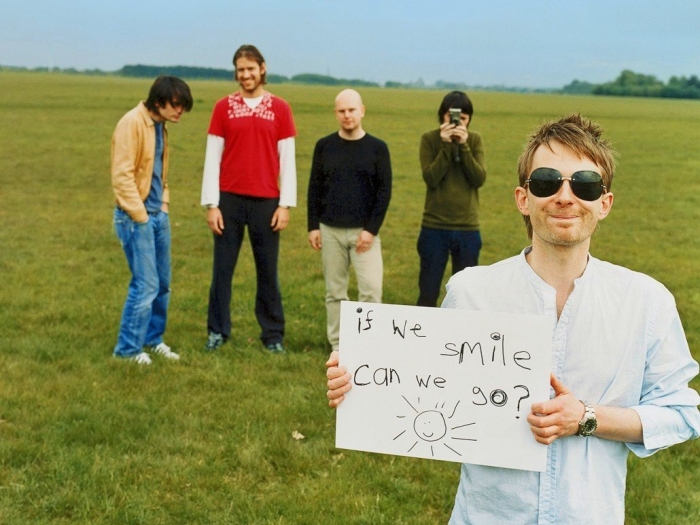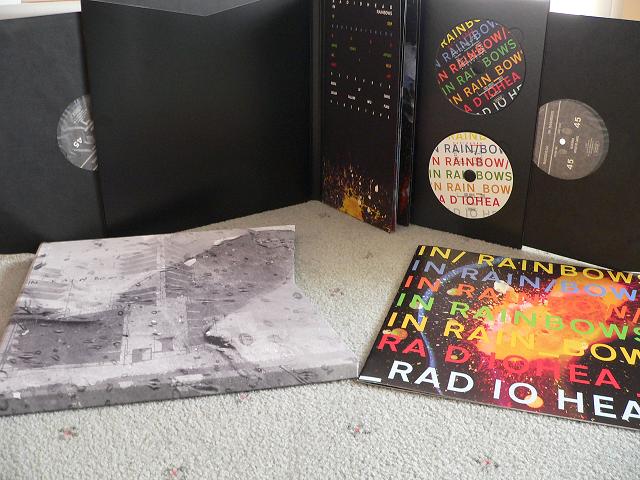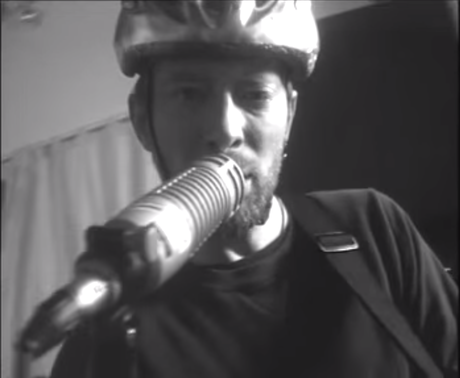|
by Sananda Gopalakrishnan Yes, the old times: it wasn’t the best of times, but it wasn’t the worst of times. Though 2008 wasn’t exactly a decade ago (it almost is, damn), it still somewhat correlates to particular trends of thoughts, some of which extend their reach to even today, whether it be in music and art, or philosophy (the everyday kind, pertaining to day-to-day beliefs and survival). In the former, Radiohead’s timeless, yet constantly reinventing style has led to their own perceived statement of the times. In Rainbows was a step further in the direction of inclusion of personal elements in their songs, instead of either general sentiment or social themes of alienation and all-consuming consumerism. From what we see of social ailments in OK Computer and The Bends (excepting a few) and the stark delineation in Kid A and Amnesiac, In Rainbows had gems of a different hue: the ones which are unintentionally reminiscent of simpler times, of elemental, even innocent, emotion and the dilemma and pleasing confusions of new-found love. All of their songs that spoke about love, spoke of one which constantly harped on the edges of a helpless obsession. This is their incessant wave of sentiment that focuses on a spiritual depravity of sorts, and they consciously speak of empty yearning, of an obsession doomed to be unfulfilled because after all, how do you yearn when you don’t know what you want? Do you only want to be noticed and be ‘together’, without knowing what being ‘together’ with that person means? This is basically the idea of being in love, being more fulfilling than being in love itself. So when Radiohead speaks of, to put it blatantly, a dating scene that is beautifully simple and one I connect with, how do I react to it? I analyse. “Jigsaw Falling Into Place” follows the breezy yet haunting “House of Cards”, with its melancholic “I don’t wanna be your friend, I just wanna be your lover”. You don’t need poetic or impassioned lyrics ones to hit where it hurts the most, as pointed out by this strangely feverish, fast-paced song. I would pass on a song that talked too much of being in love and the various effects and side-effects it wrought into your life, but not one that talked, then and there, of the whirlwind of emotions that whipped past your hair as you engaged in a connection that would probably last five minutes, or a lifetime. It is a transcript of actions and reactions over in a flurry of minutes, lost between incessant foot-tapping and music, a hypnotic chance encounter with a stranger that could lead to either total anonymity (all over again), or an indelible connection. And perhaps, it is this risk that contributes to the urgency of the song. “Jigsaw Falling Into Place” dances with the idea of recording every singular moment that occurs with this stranger, in a strangely warm bliss of feeling that strengthens into a connection – “you got a light, you can feel it on your back.” Perhaps it’s love, or perhaps it’s the excitement and satisfaction of having shared part of your story with a tangible human being, and not just correlating it with stray happenstances. Radiohead has never waxed lyrical about celebrating human interaction. Which is why, more optimistically, it is fascinating how charged and focused the song is – two people lost in their own music, lost in a crowd together and lost in the haze of happiness, with one describing everything as it happens, uncannily hopeful. There is a favourite song (so meta) to dance to, and this strange rush to keep quiet and sway before that tune loses out to yet another – savouring the moment while it lasts. There is a burning need to enjoy each other’s presence before the walls close in to unconsciousness, and before one is lost to the trance of the music. Could it be that this act of surrender is what actually lets you wish away your nightmares? The song is strangely cinematic, too, while describing the inevitable losing of each other amidst the same pressing crowd, running away from each other in the trance of pleasure and music, and then the meeting of the glances across the room, over and over again, till you either forget the person as a good thing that happened last Friday, or someone to keep looking for in the subway. I’ve said “lost” far too many times, and it’s because this feeling of “anonymity, or not!” has been lost to us. Either because it is too callous to say “Hi, stranger” anymore, or in this time of over-exposure, we have become strangers to each other, despite knowing way more than we need to. We know what you feel at 3am, thanks to your social updates, but at 5:05am, who is the first you think of? Chances are, that person is unavailable, or possibly unknown to you. The idea of meeting someone out of sheer chance and fate has become unfortunately exotic to us, because there’s always a mutual acquaintance you can lose out to. We were too young (to date) to know a time where you could “come on, and let it out” – where all kinds of relationships bloomed in actual coffee shops and you met those you fell in love with at dance bars, in a flurry of motion and emotion. Granted, those days were more superficial than now, but “Jigsaw Falling Into Place”, still, talks of a spontaneity of feeling, and the value of a single moment, that is somewhat – lost. We are too disabled to feel catharsis and freedom by being emotionally intimate with a stranger. We are unable to feel the light on our backs as we regard each other amidst multiple left and right swipes and over-reloading, because is that a stranger anymore? And yet, that person is, and these nightmares of over-familiarity cannot be wished away, at least, not that easily. The feeling of having something fall in place is a dream when we fight impermanence with short attention spans and the fear of being replaced. And therefore, “How can you miss something that you never had?”
Follow us on Facebook and Instagram to be notified whenever we release new articles.
Do you use an RSS reader? Even better!
0 Comments
Leave a Reply. |
Categories
All
Archives
December 2022
|



 RSS Feed
RSS Feed
